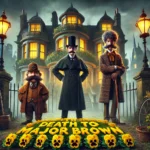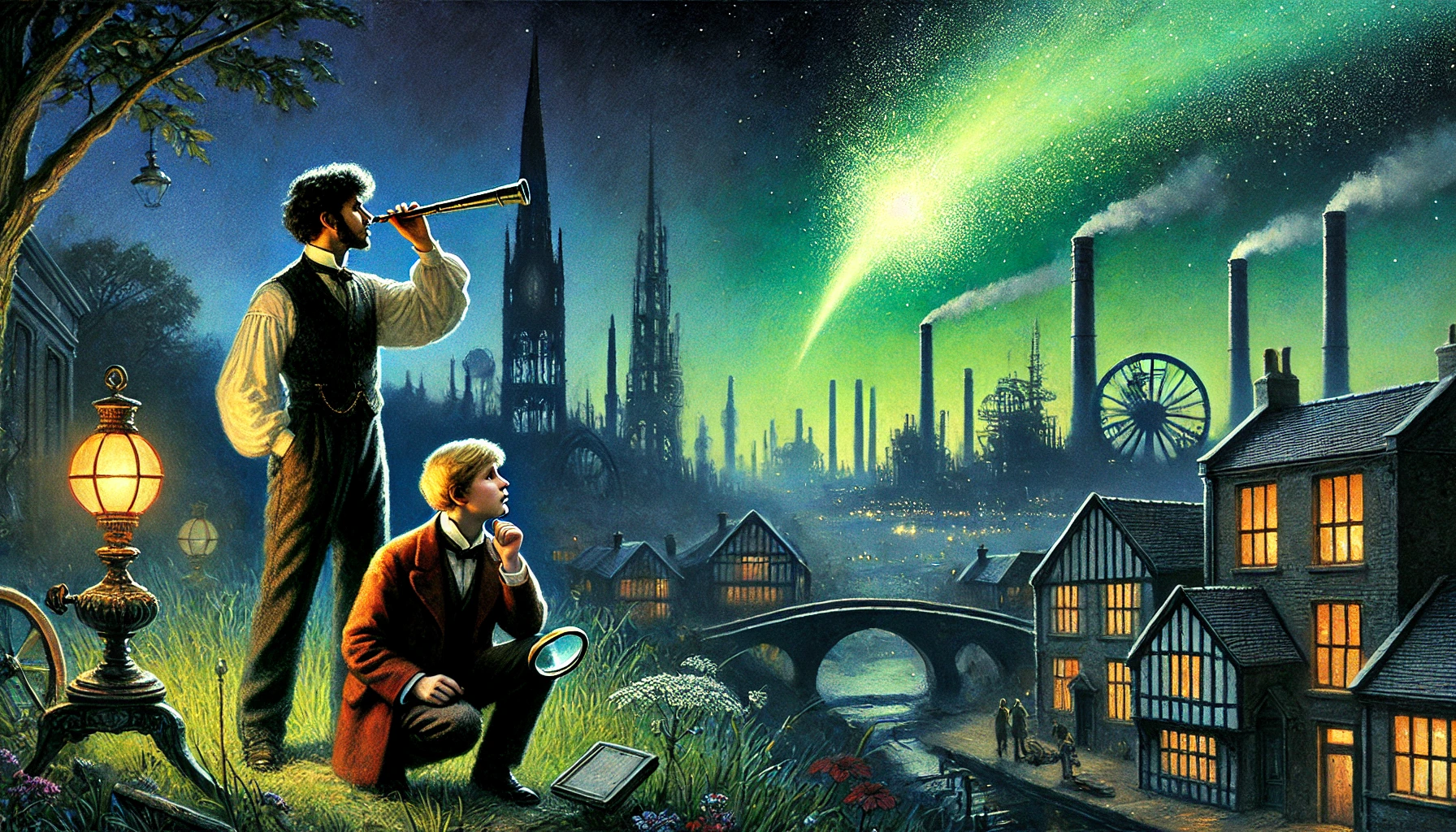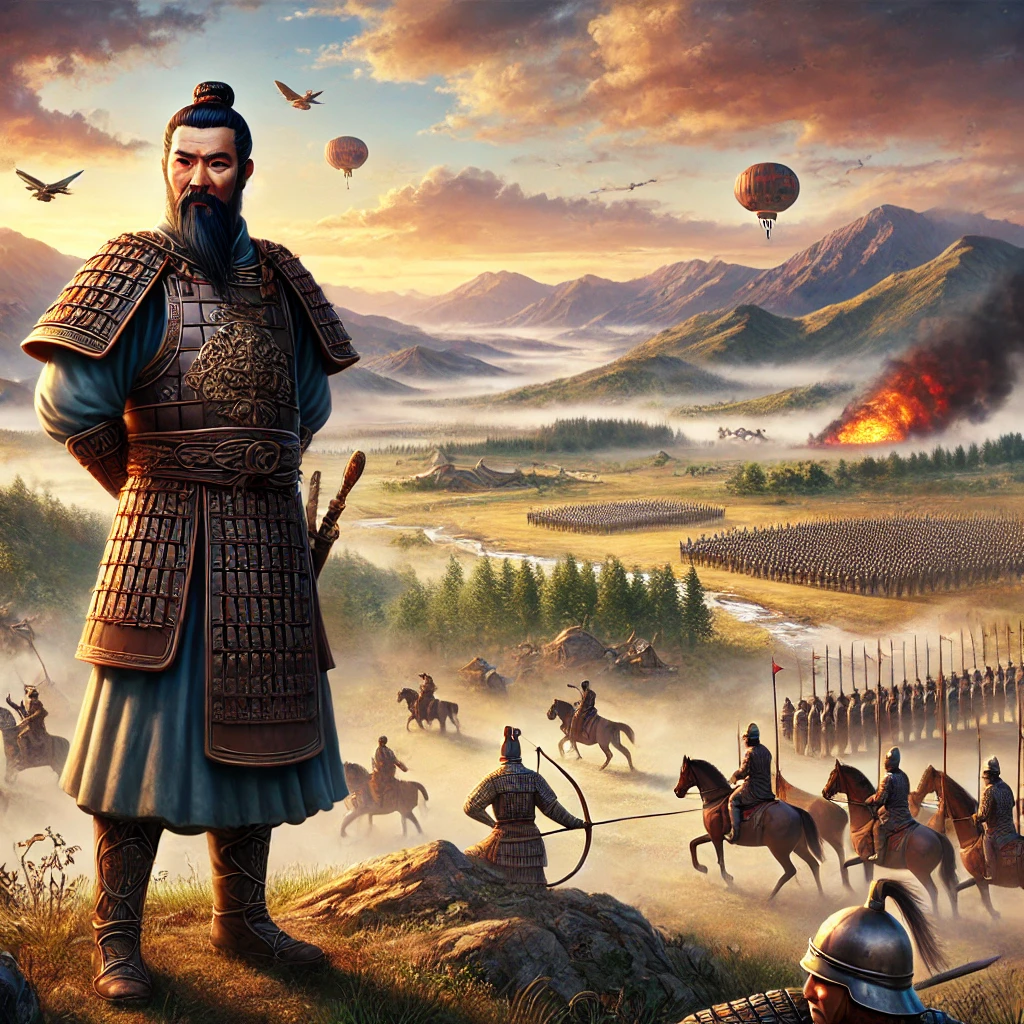The Brothers Karamazov, first published in 1880, is the final novel by the Russian writer Fyodor Dostoevsky. It is a deeply philosophical work that delves into themes of faith, free will, and the nature of human existence. The novel is centered around the Karamazov family, particularly the tumultuous relationships between the father, Fyodor Pavlovitch Karamazov, and his three sons: Dmitri, Ivan, and Alexey (Alyosha). As a profound exploration of morality, religion, and family dynamics, The Brothers Karamazov has been hailed as one of the greatest novels in world literature.
Plot Summary
Fyodor Pavlovitch Karamazov was a man of low morals and immense greed. His life was marked by selfishness and debauchery, and he cared little for the children he fathered by two different wives. The first of these wives, Adelaida, bore him a son named Dmitri, but soon after, she fled, leaving Dmitri to be raised by servants. Fyodor’s second wife, Sofya, gave him two more sons: Ivan and Alexey, known as Alyosha. She, too, died early, and Fyodor showed no interest in raising the children. Instead, Ivan and Alyosha were taken in by relatives, leaving Fyodor to continue his reckless life.
The three brothers—Dmitri, Ivan, and Alyosha—grew up separately, each shaped by different experiences. Dmitri, the eldest, was impulsive and passionate, much like his father, but he longed for a better life. He returned to his father’s estate as an adult, seeking to claim his inheritance. Fyodor, always scheming, had used Dmitri’s inheritance for his own pleasures, leading to a bitter feud between father and son.
Ivan, the second son, was a man of intellect and doubt. He questioned everything, especially the existence of God and the justice of the world. He believed the universe was indifferent to human suffering, and this belief distanced him from others. Despite his cold rationality, Ivan’s internal struggles ran deep. He had returned home as well, though his reasons were not financial like Dmitri’s but intellectual. He was drawn to the family drama, but something darker also compelled him—a desire to confront his father and challenge his own beliefs.
The youngest brother, Alyosha, was entirely different from his brothers. Raised by a kind benefactor, he had a gentle soul and a profound belief in God. He joined a monastery, becoming a devoted disciple of the elder Zossima, a wise and saintly monk. Zossima’s teachings of love, forgiveness, and spiritual peace resonated deeply with Alyosha, who sought meaning in a world often filled with pain and corruption. However, despite his faith, Alyosha could not remain detached from the troubles of his family.
Dmitri’s life took a dangerous turn when he fell in love with a woman named Grushenka. She was seductive and cunning, and both Dmitri and Fyodor were infatuated with her. Dmitri’s obsession with Grushenka only intensified his hatred for his father, who also desired her. Dmitri, desperate and in love, squandered his wealth on her, but Grushenka played a cruel game, enjoying the rivalry between father and son. The tension between Dmitri and Fyodor reached a breaking point, and everyone in the town knew that their feud would end in violence.
Ivan, who prided himself on his reason, found himself tormented by the philosophical questions that had plagued him for years. He could not reconcile the existence of evil with the idea of a loving God. One evening, in a powerful conversation with Alyosha, Ivan declared that if there was a God, he wanted nothing to do with Him. He told Alyosha that he would return the “ticket” to life, a life marred by the suffering of innocents. It was clear that Ivan’s doubts had pushed him to the edge of despair, and even his beloved brother Alyosha could not comfort him.
In the midst of this turmoil was Pavel Smerdyakov, a sly and bitter servant who lived in the Karamazov household. Unbeknownst to many, Smerdyakov was Fyodor’s illegitimate son, and he harbored deep resentment toward his father and half-brothers. Smerdyakov idolized Ivan’s atheistic ideas, and it was Ivan’s philosophical musings about morality and the absence of divine justice that influenced him the most. Smerdyakov came to believe that if God did not exist, then everything was permissible.
One fateful night, Fyodor Pavlovitch was found dead in his home, brutally murdered. The town was thrown into chaos, and suspicion immediately fell on Dmitri, who had been openly threatening his father for days. Dmitri, in a frantic state, was arrested. He had been seen running through the streets covered in blood, and his hatred for Fyodor was well-known. The case against him seemed airtight.
Dmitri protested his innocence, claiming that while he had intended to confront his father, he had not committed the murder. He had simply lost control in a drunken rage, but he had not killed anyone. Still, no one believed him. Even Alyosha, who loved his brother, struggled with the weight of the evidence.
Ivan, meanwhile, was haunted by guilt. He had not physically committed the murder, but he realized that his philosophical teachings had given Smerdyakov the justification to kill. In a series of chilling conversations, Smerdyakov admitted to the crime and revealed that he had acted because of Ivan’s words. Ivan’s belief that God did not exist, and therefore morality was meaningless, had inspired Smerdyakov to murder Fyodor. This revelation shattered Ivan, driving him into madness. He could no longer escape the moral consequences of his ideas.
Alyosha, devastated by the events, tried to remain steadfast in his faith. Elder Zossima had passed away during this turbulent period, leaving Alyosha without his spiritual guide. But Alyosha believed in the power of love and forgiveness. Despite the tragedy that had befallen his family, he continued to offer kindness to those around him, including Grushenka, who, in a surprising turn, began to soften under Alyosha’s influence.
Dmitri’s trial was a spectacle. Despite his protests of innocence, he was convicted of murder. In the courtroom, Dmitri expressed his willingness to suffer for the sins of his family and himself, embracing his punishment as a form of redemption. However, his ultimate fate remained uncertain, as those closest to him continued to search for a way to prove his innocence.
In the end, the Karamazov brothers were left broken by the murder of their father, each grappling with their own personal guilt and responsibility. Yet, amidst the darkness, Alyosha remained a beacon of hope, believing that through love and forgiveness, even the most fractured souls could find redemption.
Main Characters
Fyodor Pavlovitch Karamazov: The patriarch of the Karamazov family, Fyodor is a debauched, selfish, and greedy man. Despite being a father to three sons, he neglects his parental duties and lives a life driven by lust and greed. His corrupt nature and mistreatment of his sons lay the groundwork for the novel’s central conflicts.
Dmitri (Mitya) Karamazov: The eldest son, Dmitri, is passionate and impulsive. He embodies the sensual and emotional side of human nature, struggling between his desires and the moral consequences of his actions. Dmitri’s intense rivalry with his father over money and a shared romantic interest plays a pivotal role in the story.
Ivan Karamazov: The middle brother, Ivan, is highly intellectual, rational, and philosophical. He represents the intellectual skepticism and atheism of the novel, often questioning the existence of God and the nature of good and evil. His internal conflicts with faith and morality add depth to the philosophical undertones of the novel.
Alexey (Alyosha) Karamazov: The youngest of the brothers, Alyosha is deeply spiritual, kind-hearted, and compassionate. He is a novice monk and becomes a disciple of the elder Zossima. Alyosha’s role is that of a moral and religious counterpoint to his brothers, embodying the novel’s exploration of Christian faith and love.
Pavel Smerdyakov: Smerdyakov is Fyodor Pavlovitch’s illegitimate son, raised as a servant in the Karamazov household. He is sullen, manipulative, and plays a crucial role in the novel’s climactic events. His character adds to the novel’s exploration of free will, responsibility, and the darker aspects of human nature.
Grigory: A loyal servant of the Karamazov family, Grigory is a devout and morally rigid man who plays a fatherly role to the Karamazov sons, particularly to the youngest, Alyosha.
Theme
Faith and Doubt: One of the central themes of The Brothers Karamazov is the exploration of religious faith versus intellectual doubt. Ivan’s philosophical questioning of God’s existence contrasts sharply with Alyosha’s devout belief. Through these characters, Dostoevsky examines the tension between belief and skepticism, raising profound questions about morality, the existence of evil, and human suffering.
Free Will and Moral Responsibility: The novel explores the concept of free will and the extent to which individuals are responsible for their actions. Dmitri, Ivan, and Smerdyakov all grapple with their moral choices, while Dostoevsky raises the question of whether human beings are truly free or bound by fate, upbringing, and circumstance.
Family and Inheritance: The strained and often destructive relationships within the Karamazov family highlight themes of inheritance, both material and moral. The brothers inherit not only their father’s wealth (or lack thereof) but also his vices and unresolved conflicts, which shape their interactions with one another and the outside world.
The Nature of Good and Evil: The novel repeatedly returns to the question of what it means to be good or evil. Characters like Ivan and Smerdyakov challenge traditional notions of morality, while Alyosha represents the possibility of redemption and goodness in a corrupt world. Dostoevsky intricately weaves this theme through debates on God’s justice, the existence of evil, and the capacity for human forgiveness.
The Role of Suffering: Suffering is a key motif in the novel, with nearly every character enduring personal torment. Dostoevsky presents suffering as a path to spiritual growth and redemption, especially in the case of Alyosha, whose faith strengthens in the face of hardship. On the other hand, characters like Ivan and Smerdyakov see suffering as a manifestation of the world’s inherent cruelty.
Writing Style and Tone
Dostoevsky’s writing style in The Brothers Karamazov is both rich and complex, combining psychological depth with philosophical discourse. His narrative is dense with long dialogues that explore the characters’ inner thoughts and moral dilemmas, allowing readers to engage deeply with the novel’s thematic questions. The tone of the novel fluctuates between dark and introspective, particularly during Ivan’s existential struggles, and hopeful and tender, especially when focusing on Alyosha’s journey of faith.
Dostoevsky’s use of multiple narrative perspectives gives the reader access to a wide range of voices, from the cynical and intellectual to the pious and innocent. This creates a multifaceted view of the world, where no single perspective is entirely right or wrong. The dialogues, often philosophical and theological, are intellectually stimulating but grounded in the emotional realities of the characters.
The tone is one of moral inquiry, marked by Dostoevsky’s interest in the grand philosophical issues of his time—faith, justice, and the human soul. The novel’s intense psychological insight into its characters is balanced by Dostoevsky’s exploration of broader metaphysical questions, creating a work that is both a family drama and a profound philosophical text.
We hope this summary has sparked your interest and would appreciate you following Celsius 233 on social media:
There’s a treasure trove of other fascinating book summaries waiting for you. Check out our collection of stories that inspire, thrill, and provoke thought, just like this one by checking out the Book Shelf or the Library
Remember, while our summaries capture the essence, they can never replace the full experience of reading the book. If this summary intrigued you, consider diving into the complete story – buy the book and immerse yourself in the author’s original work.
If you want to request a book summary, click here.
When Saurabh is not working/watching football/reading books/traveling, you can reach him via Twitter/X, LinkedIn, or Threads
Restart reading!








